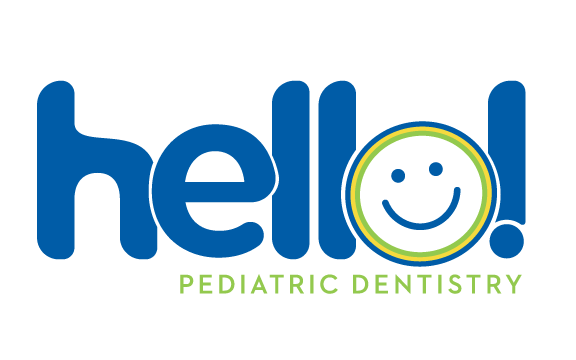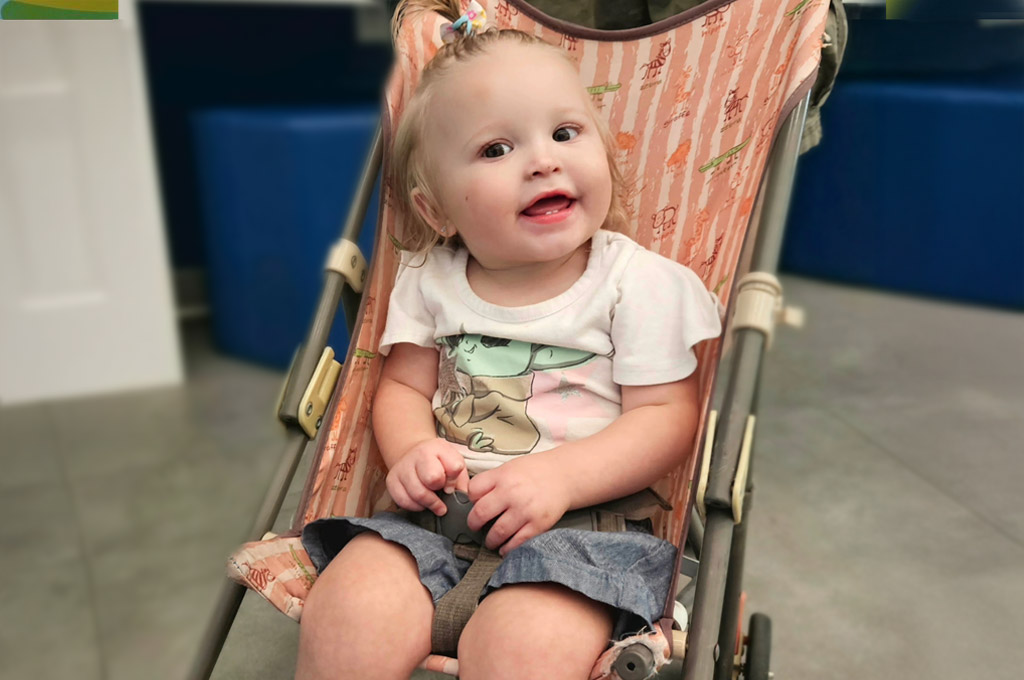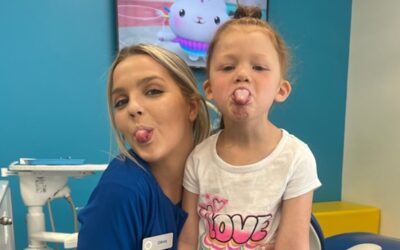HELLO! Dr. Mikayla,
I’m a new mom to a 9-month-old, and I’ve been nursing since she was born. A few friends have told me that nursing at night can hurt baby teeth. I’m confused because I want to continue breastfeeding, but I also want to make the right choices. Can nursing really cause problems for my baby’s teeth?
Thanks,
First-Time Mom in Lee’s Summit
Dr. Mikayla’s Response…
HELLO! First-Time Mom in Lee’s Summit,
What a great question. It’s one we hear from a lot of moms of our youngest patients here at HELLO! Pediatric Dentistry. Breastfeeding has many well-researched benefits. But given how much information (and opinion!) is out there about feeding and parenting in general, you’re right to ask how nursing might impact baby teeth, especially as your daughter cuts those first teeth.
Let’s keep this judgment-free and stick to what we pediatric dentists know through education, research and first-hand experience.
Is Breastfeeding Bad for Baby Teeth?
No, breastfeeding is not bad for baby teeth. In fact, the American Academy of Pediatrics (AAP) and the World Health Organization (WHO) recommend exclusive breastfeeding for the first six months, followed by continued breastfeeding alongside complementary foods for up to two years or more, due to its many benefits for both baby and mother.
However, once teeth start to erupt, typically between 6 and 12 months, oral hygiene becomes part of the routine. While breastmilk is very health for your baby, it does contain natural sugars (lactose). When these sugars remain on teeth for long periods, especially overnight, they can contribute to early childhood tooth decay, also called early childhood caries or ECC.
So breastfeeding is not the issue — it’s frequent or overnight feedings that can increase the risk of cavities.
What the Research Shows
The relationship between breastfeeding and tooth decay isn’t black and white. Studies show that breastfeeding during the first year is not a strong risk factor for cavities. However, prolonged or frequent nighttime breastfeeding after 12 months, especially when brushing doesn’t happen regularly, has been associated with an increased risk of early childhood caries (or ECC).
The American Academy of Pediatric Dentistry (AAPD) supports breastfeeding for its many health benefits but advises that on-demand nighttime nursing after teeth erupt — without oral hygiene — can increase cavity risk.
In short, nursing is healthy and once your baby’s teeth come in, you can continue breastfeeding and start simple oral hygiene routines to protect those teeth.
Tips to Protect Your Baby’s Teeth While Nursing
Here are five simple ways to protect your baby’s teeth while continuing to breastfeed:
- Start Oral Hygiene Early
Even before teeth erupt, gently wipe your baby’s gums with a clean, damp washcloth or soft finger brush after feedings. Once teeth appear, brush twice a day with a small smear (rice grain size) of fluoride toothpaste. - Be Aware with Nighttime Nursing After Teeth Erupt
If your babies fall asleep while nursing or nurse frequently overnight, try to gently wipe or brush their teeth afterward. I know this isn’t always easy, but even a quick swipe can help remove lingering milk sugars. - Create Feeding and Brushing Routines
As your babies approach her first birthday, begin establishing more predictable feeding and oral care routines. Try to brush after the final feeding of the night when possible. - Avoid Adding Sweeteners
Never dip pacifiers in honey or sugar and avoid adding cereal or flavoring to bottles or pumped milk. These habits can dramatically increase cavity risk. - Schedule Their First Dental Visit by Age 1
The AAPD recommends a child’s first dental visit by their first birthday — or within six months of their first tooth erupting. At HELLO! Pediatric Dentistry, we’ll check their teeth, offer tailored advice and answer any feeding or brushing questions you have.
Related reading: Why Your Child Needs a Pediatric Dentist Instead of the “Family Dentist
To sum it up:
- Breastfeeding has many benefits and is not inherently harmful to baby teeth.
- The risk of cavities increases after teeth erupt, particularly with frequent, overnight feedings without proper oral hygiene.
- Simple steps like wiping gums, brushing with fluoride toothpaste and regular dental visits go a long way in preventing early decay.
You’re doing a great job just by asking the question. Whether you’re nursing, bottle-feeding or doing a combination of both, we’re here to support your daughter’s oral health every step of the way.
Have more questions about baby teeth and feeding? Wondering if it’s time for your child’s first dental visit? Reach out to us.




